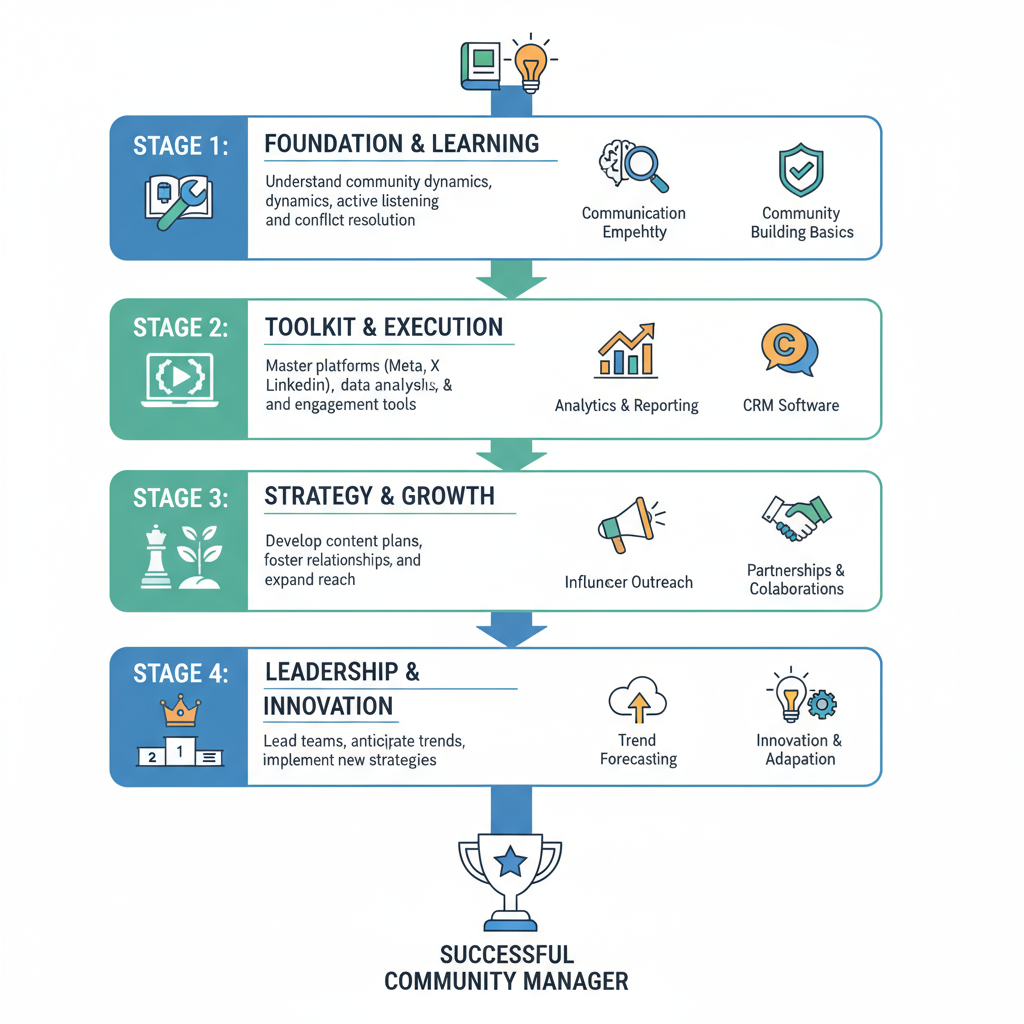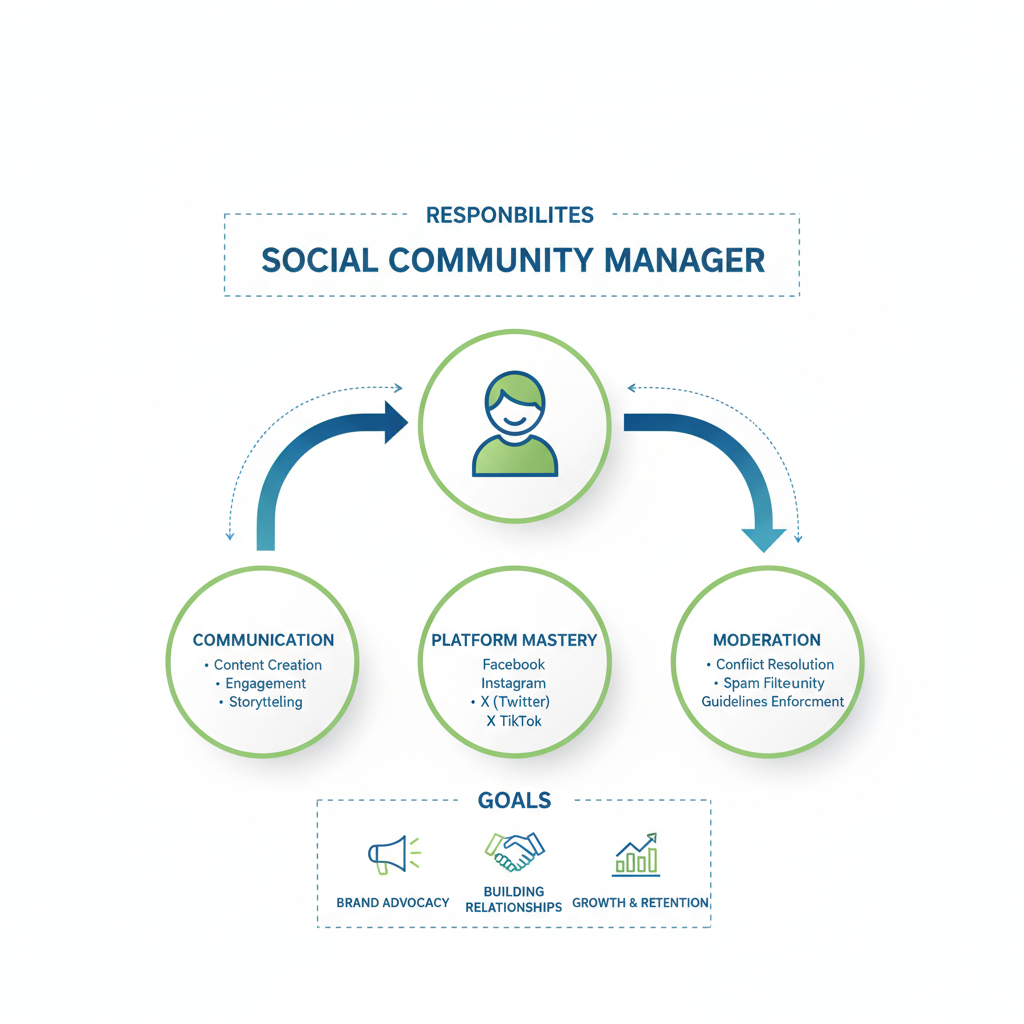Steps to Become a Successful Social Community Manager
Learn key skills and strategies to excel as a social community manager, from mastering platforms to growing engagement and resolving conflicts.

Steps to Become a Successful Social Community Manager
In today's hyper-connected digital age, the role of a social community manager is pivotal in building and sustaining vibrant online ecosystems. Businesses, non-profits, and personal brands depend on these professionals to foster engagement, encourage trust, and ensure communities thrive. This comprehensive guide outlines the essential steps, skills, and strategies you need to become a successful social community manager, blending practical tips with actionable insights.

---
Understanding the Role and Responsibilities
Before diving into tactics, you need a clear picture of what a social community manager actually does. This position is not just about posting on social media—it’s about building relationships, fostering meaningful interactions, and ensuring the community remains active and aligned with brand values.
Key responsibilities include:
- Managing and responding to community interactions
- Creating and curating platform-specific content
- Monitoring sentiment and resolving issues diplomatically
- Collaborating with marketing, PR, and customer service teams
---
Develop Strong Communication and Interpersonal Skills
At the core of community management lies communication. Your ability to articulate a message clearly, empathize with audience members, and diffuse tense situations will define your success.
Tips to strengthen communication skills:
- Practice active listening in all interactions.
- Use language that matches your brand voice consistently.
- Respond promptly yet thoughtfully to community posts and messages.
- Cultivate cultural sensitivity for global audiences.
---
Master Major Social Media Platforms
Different platforms have distinct cultures, features, and content formats. A social community manager should have a deep understanding of top channels like Facebook, Instagram, LinkedIn, and TikTok, and know how to leverage each for maximum impact.

Consider these platform differences:
| Platform | Primary Audience | Content Types | Key Features |
|---|---|---|---|
| Broad demographic | Images, videos, live streams, groups | Events, Groups, Marketplace | |
| Millennials, Gen Z | Photos, Stories, Reels | Hashtags, IGTV, Shopping | |
| Professionals & B2B | Articles, updates, videos | Groups, Company Pages | |
| TikTok | Gen Z, trending culture | Short-form creative videos | For You page algorithm, effects, duets |
---
Learn Community Growth Strategies
A thriving community doesn’t just happen—it requires strategy. Successful managers understand how to grow their audience both organically and through paid campaigns.
Organic growth ideas:
- Host Q&A sessions and live events
- Encourage user participation through polls and challenges
- Share valuable content regularly
Paid promotion tactics:
- Boost posts with high engagement
- Use targeted ads to reach new demographics
- Retarget existing followers with special offers or updates
---
Create a Consistent Content Calendar Aligned with Brand Goals
A content calendar ensures your messaging is consistent, timely, and in line with overarching brand objectives.
Best practices for creating a content calendar:
- Map content to specific campaigns or launches
- Include a mix of formats (images, videos, infographics)
- Schedule posts during peak engagement times
- Plan seasonal or holiday-related content in advance
Pro tip: Use tools like Trello, Asana, or Google Sheets for collaborative content scheduling.
---
Implement Effective Moderation and Conflict Resolution Techniques
Online communities can face conflicts—from misunderstandings to inappropriate posts. As a social community manager, developing moderation policies and knowing how to resolve disputes diplomatically is essential.
Conflict resolution workflow:
- Monitor community interactions regularly.
- Enforce clear community guidelines.
- Respond to conflicts with empathy.
- Remove harmful content promptly while explaining your decision.
---
Use Analytics Tools to Measure Engagement
Data-driven decision-making separates good managers from great ones. Tracking metrics helps you understand what resonates with your audience and guides future strategies.
Popular analytics tools:
- Native insights tools (Facebook Insights, Instagram Analytics)
- Third-party platforms like Hootsuite, Sprout Social, Buffer
- Google Analytics for traffic from social channels
---
Leverage User-Generated Content for Authenticity
User-generated content (UGC) is one of the most powerful tools for building trust within a community. It demonstrates real people engaging with your brand and fosters a sense of belonging.

Ways to encourage UGC:
- Host photo or video contests
- Create branded hashtags
- Feature community stories on official channels
---
Stay Updated with Trends and Algorithm Changes
Social platforms evolve quickly—algorithms shift, formats emerge, and audience preferences change. Stay ahead by:
- Reading industry blogs like Social Media Examiner, HubSpot
- Following updates from platforms’ official blogs
- Experimenting with new formats and features
---
Build Relationships with Influencers and Advocates
Influencers and advocates can amplify your reach and credibility.
Steps to collaborate effectively:
- Identify relevant influencers through research.
- Offer mutually beneficial partnerships.
- Maintain genuine, long-term relationships.
---
Manage Cross-Platform Engagement While Maintaining Brand Voice
With audiences across platforms, consistency is vital—tailor content to fit norms without compromising your brand voice.
Example tones:
- LinkedIn: Professional, informative
- TikTok: Light-hearted, trend-focused
- Instagram: Visual storytelling
Tools to help:
- Buffer or Hootsuite for cross-posting
- Brand style guides for consistent tone and visuals
---
Invest in Continuous Learning
The best community managers treat professional growth as an ongoing journey.
Resources:
- Coursera, LinkedIn Learning, Skillshare
- Industry conferences like Social Media Marketing World
- Professional associations and local meetups
---
Summary and Next Steps
Becoming a successful social community manager demands a mix of interpersonal skills, platform expertise, data analysis, and adaptability. By mastering communication, fostering growth, leveraging analytics, and building authentic connections, you can lead dynamic communities that reinforce brand loyalty.
Ready to take your community management career to the next level? Start applying these strategies today and watch your online engagement flourish.

